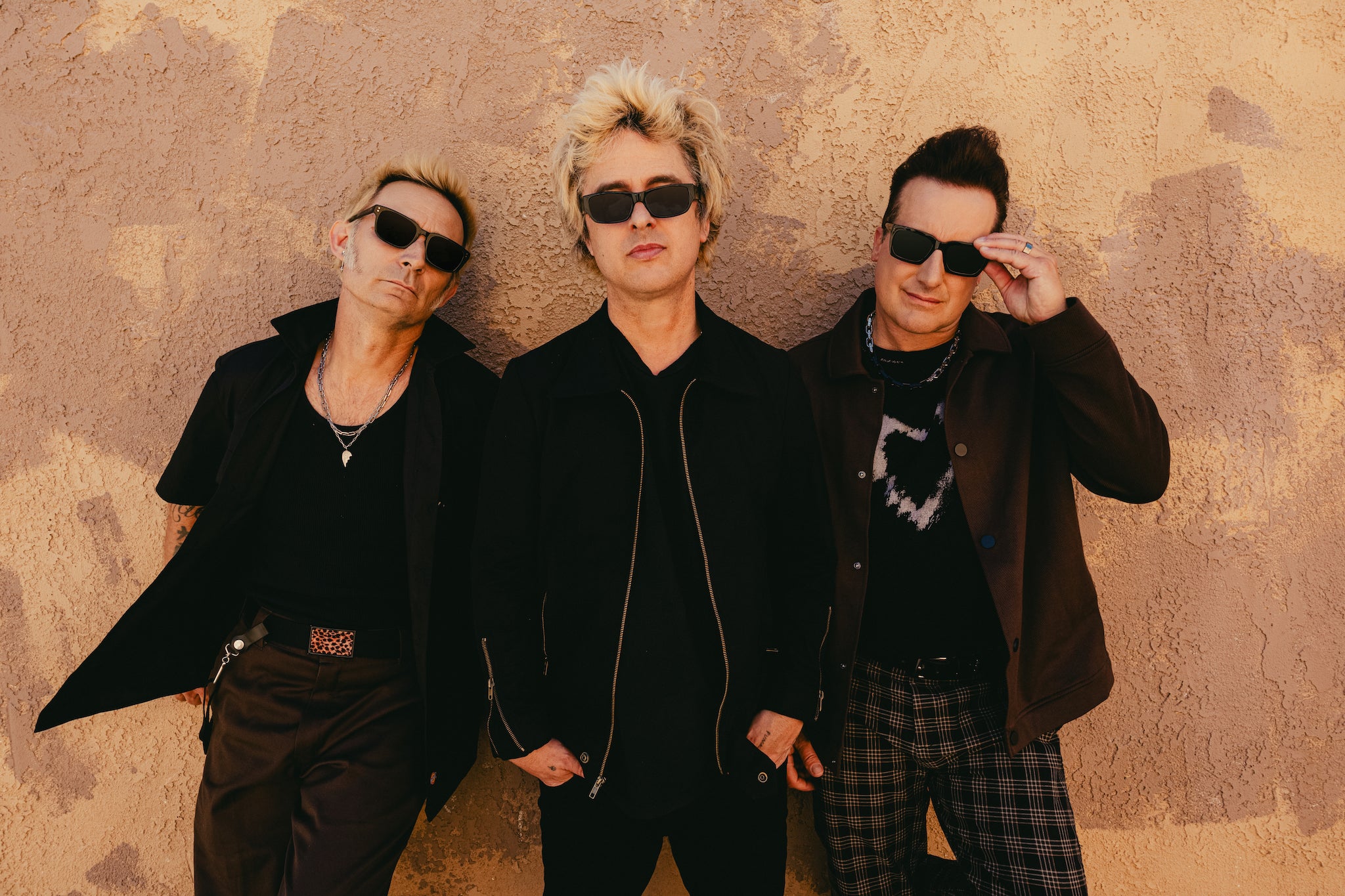Green Day review, Savior: Stroppy chant-alongs about the State of Things
The third and final part of the band’s American Idiot trilogy is heartfelt, but also ploddingly unoriginal

It’s been 30 years since Green Day released Dookie (1994) – the album that took the basic, blunt force of Ramonesian punk and hung it on mall-friendly pop-hook coat-hangers. Ten years later, they dropped the Bush-bashing American Idiot (2004). They’re now billing their 14th album, Saviors, as the third and final part of this trilogy, clearly in the hope that it also goes platinum using the same stack of stroppy chant-alongs to channel their frustration with the State of Things in the 2020s.
It barges into action with “American Dream”, a battering ram of a track that wallops you with the repeated line: “The American dream is killing me!” The energy of a trio who met in their mid-teens seems undimmed now they’re in their fifties. Frontman Billie Joe Armstrong smacks out the power chords like he’s high-fiving the front row at a gig. Mike Dirnt uses his bass like a moshpit metronome. Tré Cool’s sticks sound like they’re at splinter-point as they bounce off his kit.
The relentless ASMR-y tinsel of Cool’s hi-hat at the treble – along with the lack of gaps in Armstrong’s thrashing – sludges out the sound too thickly. But there’s no doubt that the world likes to headbang along to the band as they rail against their nation’s brutal inequalities. American Idiot’s title track topped the Amazon singles chart during the week that Donald Trump visited the UK in 2018. And here, Armstrong wails that he’s sending out an “SOS” from the land of the free, before slumping into a string-soaked bridge in which he reminds us of the “people on the street/ Unemployed and obsolete...”
Having started out playing a club whose rules were “No racism. No Sexism. No Homophobia”, the band have always brought those values into what can otherwise be quite a white, macho scene. It’s cool to hear the bisexual Armstrong singing about potential boyfriends on “Bobby Sox” and celebrating female punks on “1981”.
Their immature streak comes out to play on “Look Ma, No Brains!” Nobody likes to be told to grow up, but it’s weird to find these middle-aged men are still parent-baiting with lyrics about being a “sick boy and I s*** the bed”. “Dilemma” is an enjoyably self-pitying whinge about feeling like a “dead man walking”. “One Eyed Bastard” opens with a riff that borrows far too heavily from Pink’s “So What?”, but splices it nicely with a crowd-pumping chorus of “ba-da-bing/ ba-da-boom!” There are some rare breaks in the noise that give both hooks a chance to breathe.
Things slow down at the halfway point. “Goodnight Adeline” sees Armstrong (off the booze and pills since his public unravelling in 2017) lamenting that, though sober, he can still wake up feeling hungover. They riff on the Beach Boys’ lost American optimism on “Corvette Summer”, singing, “Get around, I can get around/ f*** it up on my rock’n’roll.” There’s a breezy melody on “Suzie Chapstick”, which taps into the self-doubt and inarticulacy of teen romance: “Do you want me to just go away? I just wanna be your nobodaaay...” It comes accessorised with some pretty, vintage “ba-ba-ba” backing vocals.
Armstrong gets soppy on “Father to a Son”. Over a sincerely plonked piano, he sings to his two boys, apologising for his mistakes and promising to be “a lighthouse in the storm”. As the strings swoop around in the background, he also quotes the melody of the band’s 2005 hit single ‘Wake Me Up When September Ends” – written about his own father, who died when he was just 10 years old. The Green Day faithful will lap it up. As, I suspect, they will Saviors, which is tight and heartfelt if ploddingly unoriginal. But there can be comfort in the muscle memory of the old feeling of fists in the air. Skater sweatbands aloft, I guess.
Join our commenting forum
Join thought-provoking conversations, follow other Independent readers and see their replies
Comments
Bookmark popover
Removed from bookmarks